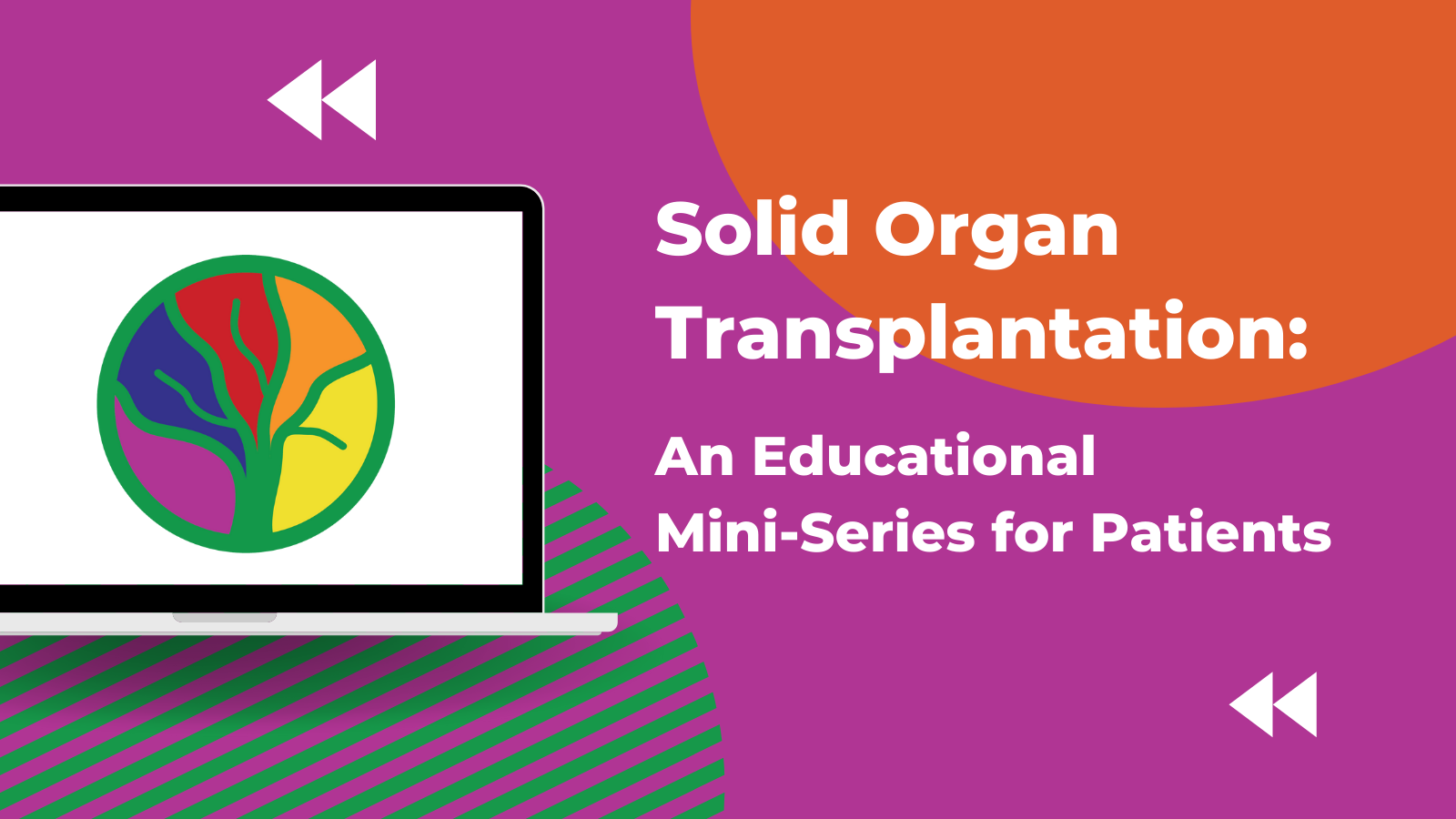
This 6-part video series describes the kidney transplant process. Health care providers will share their knowledge, and people living with kidney disease will share their experiences. It is our hope that these videos will help you learn what you can do to have a successful transplant.
his new one-page guide shows where to check the serving size, the percentage of daily value, and the ingredients list. Knowing what to look for can help in comparing products and making better food choices.
Thanks to the provincial Renal Dietitians Practice Group and patient partners of the Kidney…
Understanding your loved one's wishes is just one part of supporting their decision to become an organ or tissue donor. Knowing what to expect, if the unthinkable should happen to your loved one, is another.
Beyond, how the organ donation process works, this animation details the ICU experience fr…
When you register to be an organ donor in Canada, you can also register to donate your tissue as well. Each person can donate seven types of tissue to help improve the quality of life of up to 75 people. It’s an astounding legacy to leave.
Unlike organs, eye and tissue can be stored (in an eye and…
Host Candice Coghlan is joined by guest host, Kate Chong, who received a kidney transplant from her husband. Kate and her husband have a two year old daughter, and she is excitedly awaiting the birth of her son. Candice and Kate discuss their journeys in family planning, being pregnant, and the joy…
In this webinar from Living Donation Week 2025, we had insightful discussions, personal stories, and expert advice on navigating the emotional journey of transplantation. Whether you're waiting for an organ, a transplant recipient, living organ donor, caregiver, or healthcare professional, this eve…
Information Booklet and Decision Support Tool for Parents
The goal is to assist Indigenous people and their caregivers learn about CKD and help them with decision-maki…
Sacred Gifts tells the powerful true story of two First Nations brothers, Kevin, a kidney transplant recipient, and his brother, Craig, who chose to become his living donor. Sacred Gift serves as a health resource, designed to ignite discussion, dialogue, and debate about living organ donation in r…
Dr. Jessica Kichler, clinical and health psychologist and associate professor in the department of psychology at the University of Windsor, will review the updates to the clinical practice guideline on diabetes and mental health related to children and adolescents, as well as screening, assessment,…
The Canadian Network for Rehabilitation and Exercise for Solid Organ Transplant Optimal Recovery (CAN-RESTORE).
CAN-RESTORE is a dynamic network dedicated to achieving optimal health and well-being for transplant candidates and recipients through physical fitness and rehabilitation. CAN-RESTORE h…
Being prepared in the event of a disaster is important, especially for dialysis patients. BC Renal has a number of resources to help you prepare, including booklets and videos. Resources are offered in English, Chinese, and Punjabi.
Sacred Gifts tells the powerful true story of two First Nations brothers, Kevin, a kidney transplant recipient, and his brother, Craig, who chose to become his living donor.
Sacred Gift serves as a health resource, designed to ignite discussion, dialogue, and debate about living organ donation in …
Sacred Gifts tells the powerful true story of two First Nations brothers, Kevin, a kidney transplant recipient, and his brother, Craig, who chose to become his living donor.
The animation serves as a health resource, designed to ignite discussion, dialogue, and debate about living organ donation i…
The Canadian Society of Transplantation (CST) provides a comprehensive list of Transplant Programs and Organ Procurement Organizations (OPOs) across Canada. This resource includes details on transplant centers, organ donation programs, and their associated hospitals, helping patients, families, car…
BC Transplant oversees all aspects of organ donation and transplant across BC and manages the BC Organ Donor Registry.